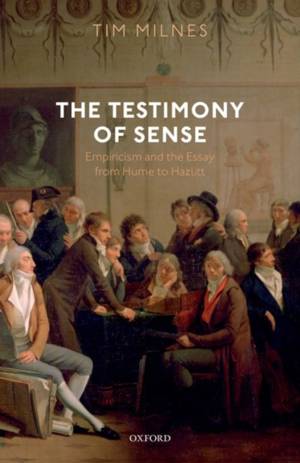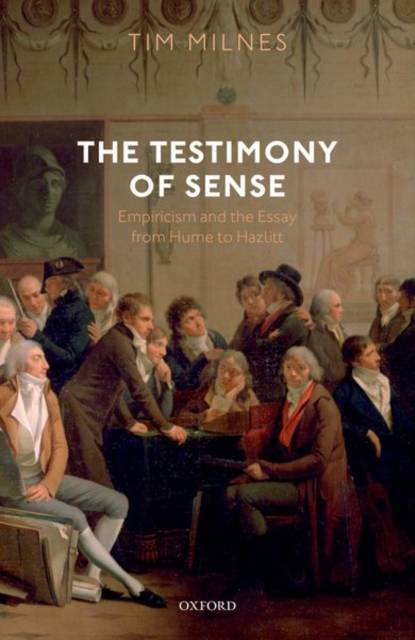
Wil je zeker zijn dat je cadeautjes op tijd onder de kerstboom liggen? Onze winkels ontvangen jou met open armen. Nu met extra openingsuren op zondag!
- Afhalen na 1 uur in een winkel met voorraad
- Gratis thuislevering in België vanaf € 30
- Ruim aanbod met 7 miljoen producten
Wil je zeker zijn dat je cadeautjes op tijd onder de kerstboom liggen? Onze winkels ontvangen jou met open armen. Nu met extra openingsuren op zondag!
- Afhalen na 1 uur in een winkel met voorraad
- Gratis thuislevering in België vanaf € 30
- Ruim aanbod met 7 miljoen producten
Zoeken
€ 159,95
+ 319 punten
Omschrijving
The Testimony of Sense attempts to answer a neglected but important question: what became of epistemology in the late eighteenth century, in the period between Hume's scepticism and Romantic idealism? It finds that two factors in particular reshaped the nature of 'empiricism': the socialisation of experience by Scottish Enlightenment thinkers and the impact upon philosophical discourse of the belletrism of periodical culture. The book aims to correct the still widely-held assumption that Hume effectively silenced epistemological inquiry in Britain for over half a century. Instead, it argues that Hume encouraged the abandonment of subject-centred reason in favour of models of rationality based upon the performance of trusting actions within society. Of particular interest here is the way in which, after Hume, fundamental ideas like the self, truth, and meaning are conceived less in terms of introspection, correspondence, and reference, and more in terms of community, coherence, and communication. By tracing the idea of intersubjectivity through the issues of trust, testimony, virtue and language, the study offers new perspectives on the relationships between philosophy and literature, empiricism and transcendentalism, and Enlightenment and Romanticism. As philosophy grew more conversational, the familiar essay became a powerful metaphor for new forms of communication. The book explores what is epistemologically at stake in the familiar essay genre as it develops through the writings of Joseph Addison, David Hume, Samuel Johnson, Charles Lamb, and William Hazlitt. It also offers readings of philosophical texts, such as Hume's Treatise, Thomas Reid's Inquiry, and Adam Smith's Theory of Moral Sentiments, as literary performances.
Specificaties
Betrokkenen
- Auteur(s):
- Uitgeverij:
Inhoud
- Aantal bladzijden:
- 290
- Taal:
- Engels
Eigenschappen
- Productcode (EAN):
- 9780198812739
- Verschijningsdatum:
- 27/08/2019
- Uitvoering:
- Hardcover
- Formaat:
- Genaaid
- Afmetingen:
- 160 mm x 236 mm
- Gewicht:
- 589 g

Alleen bij Standaard Boekhandel
+ 319 punten op je klantenkaart van Standaard Boekhandel
Beoordelingen
We publiceren alleen reviews die voldoen aan de voorwaarden voor reviews. Bekijk onze voorwaarden voor reviews.











